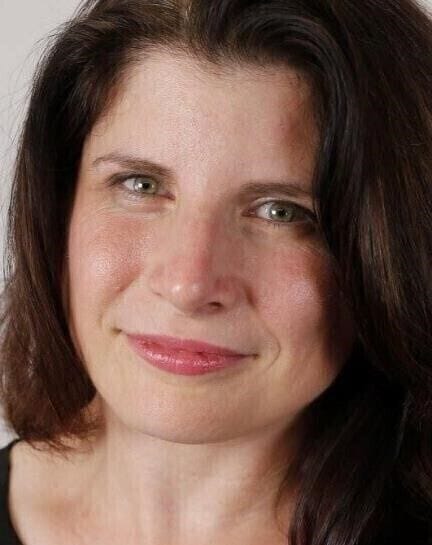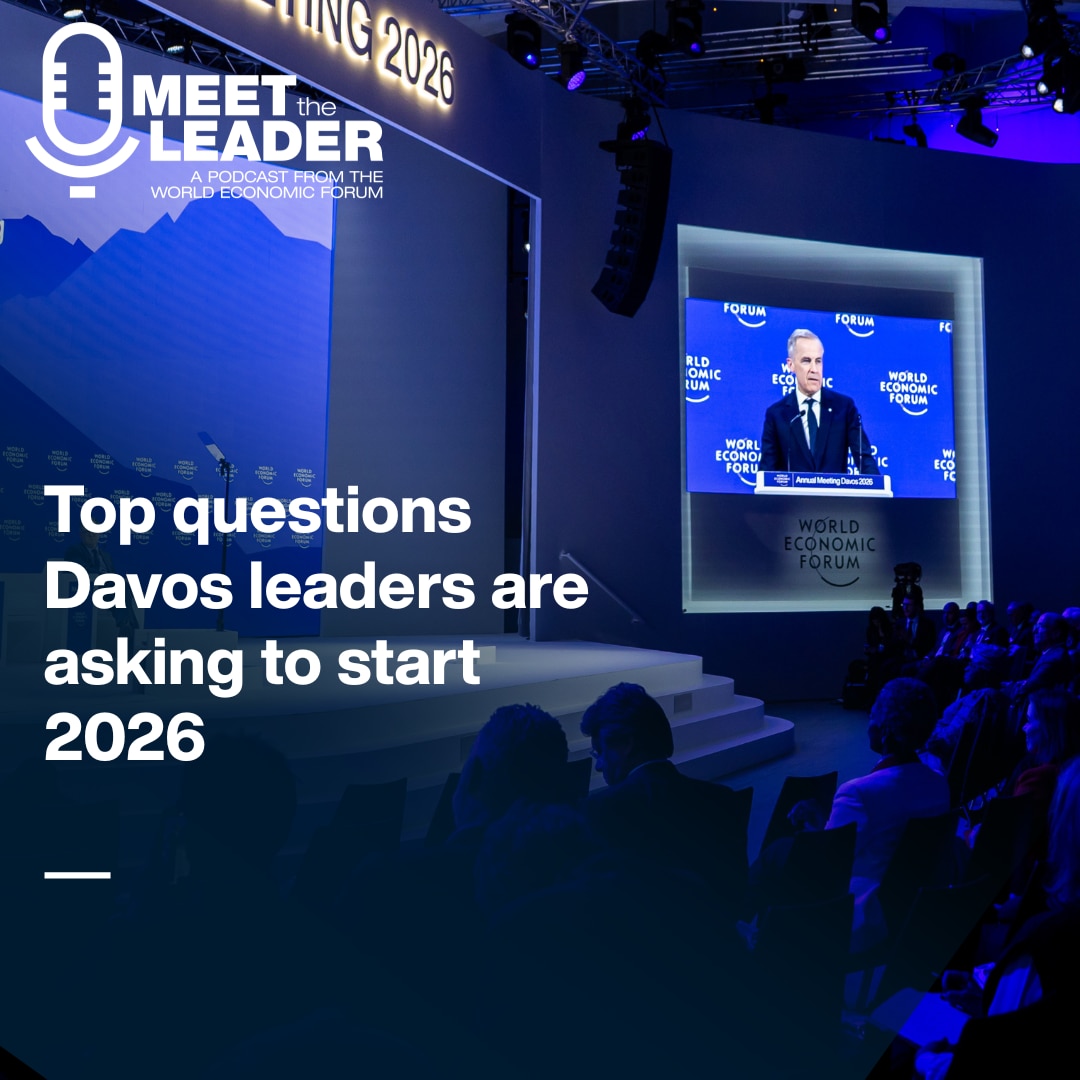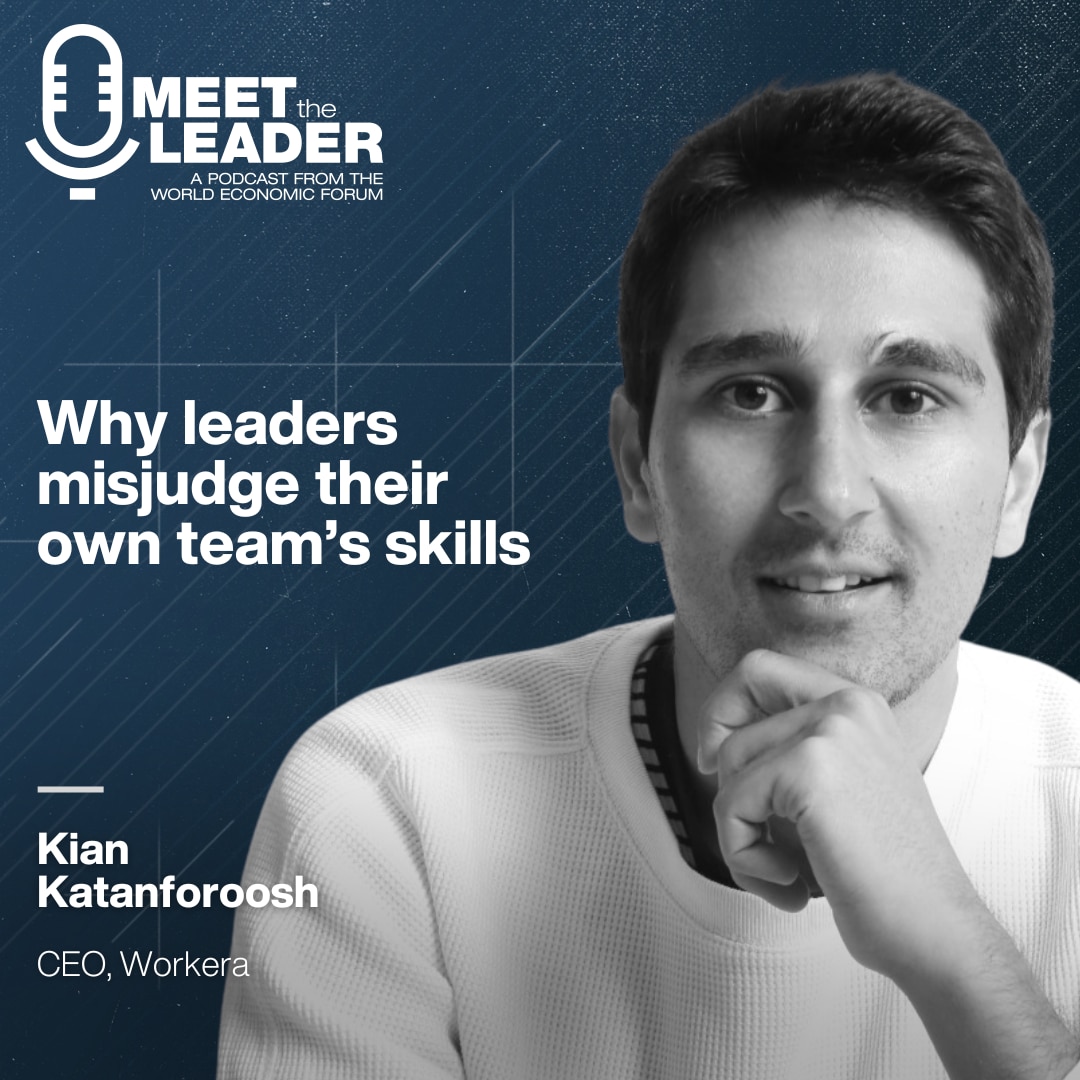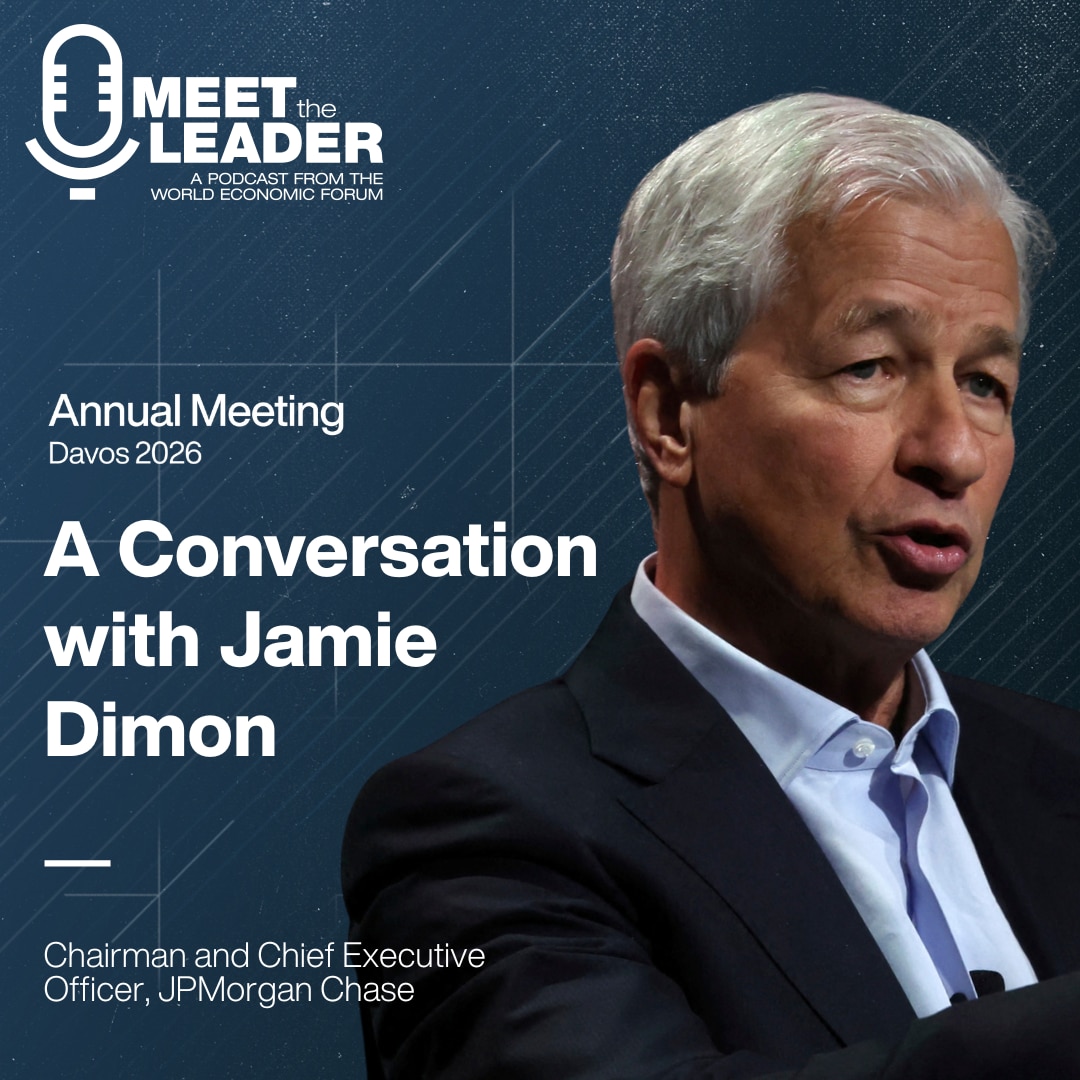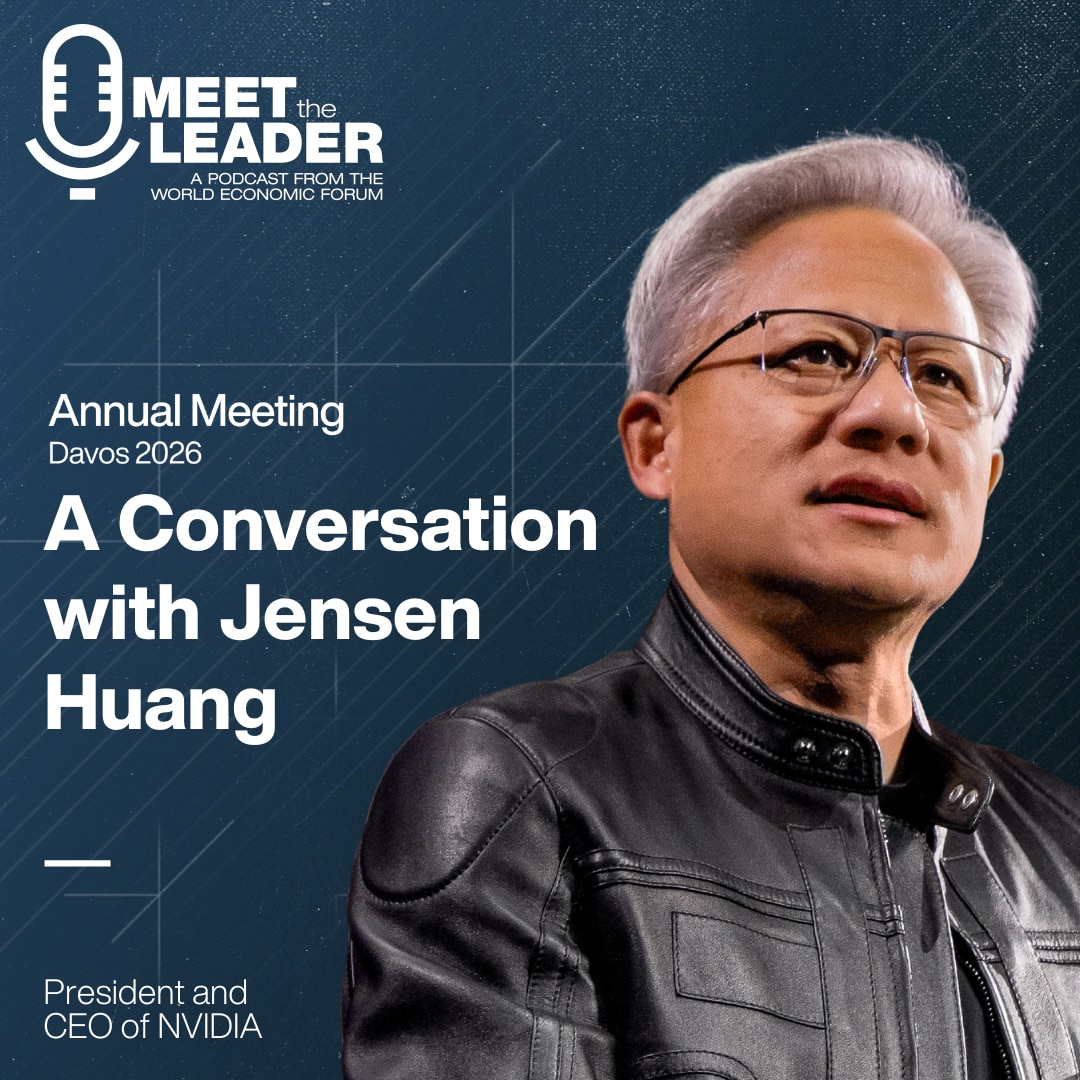Ray Dalio: The climate crisis is ‘expensive,’ ‘existential’ - How bridging climate finance gaps can help
ポッドキャスト・トランスクリプト
Ray Dalio I saw a mismatch between opportunities that provide a double bottom line. In other words, they would help the ocean. They would help the environment through helping the ocean. And at the same time, there would be good investments and there was a gap there. And so that was very exciting.
Spencer Feingold, Meet The Leader Welcome to Meet the Leader. I'm Spencer Feingold and I'm very excited to welcome you into the World Economic Forum studio in Geneva for a special conversation on tackling the climate crisis.
Today we have with us Ray Dalio. You probably know Ray as the founder of Bridgewater Associates. Ray founded the firm in 1975 and he grew it into one of the world's largest hedge funds.
Over decades of investing experience, Ray became a student of patterns. Patterns, for instance, in economic shifts in geopolitical conflicts. He's also a student of history and he tracked these patterns over centuries, writing a range of bestselling books, identifying and exploring the key forces that have shaped and continue to influence the global economy.
Climate change is one of those forces. And today, he'll talk to us about what we can expect for economies and societies around the world. Specifically, we'll dive into the role of climate financing.
Moreover, Ray is also a longtime philanthropist and a signatory of the Giving Pledge, which is a promise made by some of the world's wealthiest people to give most of that wealth away to charity.
So today, he'll talk to us about the special role philanthropy can play in mitigating the climate crisis and how philanthropy can advance the solutions we need today.
Thank you so much for being here. Welcome to Geneva and welcome to Meet the Leader.
Ray Dalio Thank you. I'm excited to be here.
Spencer Feingold, Meet The Leader Great. Well, I'd like to begin chatting with you about something you've written and spoken about recently, which are five big things that are changing the global economy.
Do you mind just briefly discussing what those five things are?
Ray Dalio These five things have happened repeatedly through history, largely in cycles. So there are three main ones that drew my attention and I discovered the other two.
There's a debt cycle, a debt money cycle. You accumulate a lot of debt. Then how do you deal with it? You print money or you default. That carries through to economics and markets. And of course, that has a big effect on the world, the economy and so on.
Second is the internal conflict, internal order and disorder, quite often having to do with greater and greater wealth differences and values differences that create populism on both sides, that create an internal conflict. And that internal conflict almost creates disorder because compromise is considered a sign of weakness. And then there is that conflict, the great internal conflict.
Number three is the external conflict between countries, the great world order. So, for example, you know, we, you have a war, a new power comes in, becomes a dominant power and then there's a cycle. And so now we have a great world conflict or of the world order. As you see the rise of China, the United States and these, OK, the world order has changed. So number three is that.
Number four, throughout history, even more important than the first three, is nature, changes in nature. Droughts, floods and pandemics have killed more people than wars and have been more responsible for changes in orders, the loss of a domestic or a world order.
And then number five has always been technology, man's learning and then the creating of new technologies. And all of these are very interrelated.
So, for example, if you have a debt problem and an economic problem at the same time as you have large wealth gaps and so on, there's a greater risk of conflict. So those are the five great forces.
And if we look at the cycles and where they're happening, there's an archetypical cycle. And you can almost plot what's happening in relationship to that cycle. So I think it's a frame of reference that when I look at the US elections or I'm looking at the world geopolitical situation, it is that archetypical cycle, that dynamic that I'm plotting the actual developments against.
Spencer Feingold, Meet The Leader So I'd like to dive a bit deeper into number four, the crisis of the climate in nature. You say it's now killing more people than war. How exactly is this crisis impacting the global economy as well as our politics today?
Ray Dalio Well, economically, it's estimated that one way or another, it's going to cost about $8 trillion a year and the world GDP is $100 trillion. So it's going to be expensive. If you don't deal with it, it could be catastrophically expensive. If you deal with it the way we are right now, money has to go into it in order to be able to make progress in mitigating it. Sticking to the one-and-a-half degrees and such.
Climate change is going to be very existential. It will cause great migrations. It'll cause great turbulence.
”Spencer Feingold, Meet The Leader But when we talk about climate financing, as you mentioned, doing nothing will be very expensive. But also doing something does cost money. So we do need climate financing. But as you've written about, there are some barriers holding back this type of investment.
Do you mind speaking to those barriers and perhaps what are the factors that are creating them?
Ray Dalio It's estimated now that only about one-sixth of the amount of money that is needed is being obtained. And so we have a situation now where I think one needs to think, who has the money and what are their motivations?
And so when you look at that, there are philanthropists but that's tiny by comparison. Total worldwide, about 2 trillion. And most of the money goes to religious organizations, hospitals, universities. Only 2% or so, goes to climate issues.
And then if you take banks or corporations and so on, they have their obligations and their standards and changes have been made. But the biggest pile of money is institutional investor money.
And so since that's an area that I know about and I know that there would be the motivation to invest in this area, if they can be made so that there's a return, that that's important because anybody, institutional investors, still has a constituency to take care of, so they have to pay attention to the returns. They just can't give money away.
If you think about innovation, we want innovation and you think of how does it take place? It takes place in venture capital or capital in various ways. And so the idea of being able to take advantage and support that kind of innovation to be able to make more profit is being one that is underutilized. There's not much going on in that area yet there should be.
So I think that that would be an important area as well as other areas. Philanthropy, for example, as taking first loss positions, can provide leverage so that there are a number of things that need to be done. But I think you have to make it economic as well or deal with the incentives.
Spencer Feingold, Meet The Leader So regarding incentives with institutional investors, would you say a good frame of mind is saying, you know, investing in the climate in nature, it's not charity, it's not just being a good Samaritan, it's actually an investment?
Ray Dalio That's right and so step back and think about great things that have happened, you know, changes in wind and solar and electric vehicles and so many of these other development investments in those areas that can pay off have the benefit, the double bottom line benefit of achieving the desired climate effect but also being able to pay for themselves so that they can be the basis of self-reinforcing resource allocation.
Spencer Feingold, Meet The Leader Right? You also mentioned philanthropy, climate philanthropy. Do you mind just speaking of it, what does that mean to you and perhaps are there any advantages to that? There are some certain financing gaps that philanthropy is better poised to cover than the private or public sector.
Ray Dalio Yes. The big problem with philanthropy, if we just look at it normally, you know, there's a limited number of philanthropic dollars and then most people have the thing they want to devote to philanthropy.
So as I say, it's universities or their religious organizations and so on. The likelihood of being able to move that by big numbers, I think, is small. So we have to keep that in mind.
Nonetheless, philanthropy can work in climate in various ways, such as it can take more risk. I think of myself as a philanthropist. Most of what I do in philanthropy is grants.
So when I'm giving money away, I don't look for a return for that. But when I do that, if I do that and I do that in a form where maybe I can have a leveraged beneficial effect on what is going to happen, I'm excited as a philanthropist.
So there is money to be tapped there but it has to be recognized that that's very limited money. It's not going to achieve the objective. The objective has to be to move it by a factor of six times something, some big number like that. And there will never be that amount of money coming from philanthropy.
So let's put numbers to the amount of potential dollars or potential currency, whatever it is, that ends up going in there and target. Where are we going to get the most amount of resources to be able to have the most dollars to achieve the goal?
Spencer Feingold, Meet The Leader Yeah. Well, I know personally you are passionate about the oceans and you've done a lot to help protect the ocean. Where has that interest come from?
Ray Dalio When I was growing up, I watched Jacques Cousteau on television, you know, and he would dive and then he would make discoveries. And that inspired me. And so I learned to dive.
And then I realized that the ocean is our greatest natural resource. It's twice the size, more than twice the size of all land combined. And it's totally unexplored. Imagine if you had a continent that was unexplored and its impact on climate and the world is enormous.
I can rattle off the factors in terms of how much carbon sequestration happens, how much heat is absorbed by that, how changes in currents affects the weather and so on and it's neglected.
So for me, I developed the passion of being able to create the vehicle I created. OceanX is the name of our foundation, and then it has an exploration ship. Watch it on Disney.
Like Jacques Cousteau did, we created a series that shows the exploration that's done on that ship because there's a real benefit for the discoveries that are made. That's terrific. But when I show it and people fall in love with the ocean and care about the ocean, I've seen direct impacts on legislation and so on in order to protect the ocean.
So that's my particular passion to be able to have that big impact on the ocean and and the protection of it and the utilization of the discoveries that can be in so many ways beneficial.
Spencer Feingold, Meet The Leader Yeah. Do you mind us speaking a bit more about the research that's done there and how it's been used to impact legislation?
Ray Dalio A lot of Blue Planet II was shot on it and as a result, it was shown and because Blue Planet II was so popular, it changed the whole legislation in the UK regarding plastics in the ocean.
But we're seeing marine protected areas. We're seeing coral restoration. We've discovered species, many different species. So there's biomimicry in many, many different things that I can go into. But if, for example, we had discovered a thousand-year-old coral in the Red Sea and veteran in water, that is, hot water and so forth, the ability to rejuvenate and grow coral reefs and something like 70% of the species are fish. These seas are in coral reefs.
There's so much discovery. Many, many cases I could. eDNA – environmental DNA is a science that came about and largely was supported by us that means that you could take a drop of water and you could see the species that have travelled through there.
And then in so many different ways, it tells you so much about controlling the environment but also protecting those species. So there are many, many different ways. And we discovered the giant squid in its natural habitat and so on. And that was literally hundreds of millions of people did that and reacted well to that.
Spencer Feingold, Meet The Leader So I know also you were at COP28 in Dubai last year. How was that experience? Did you leave feeling hopeful?
Ray Dalio Yes, thrilling. And the reason why for me was I had a number of entrepreneurs on the ship. I'm saying these are people who care a lot. They have their passion about the ocean and they have their passion about their entrepreneurship. And I really believe great change comes from entrepreneurship.
So I saw a mismatch between opportunities that provide a double bottom line. In other words, they would help the ocean, They would help the environment through helping the ocean and at the same time they would be good investments and there was a gap there. And so it was, that was very exciting. So to bring it together was very exciting.
But the big thing is to move the needle in a much bigger way. And so my view or my little bit is through the ocean and particularly believing that philanthropy, when combined with also making good investments, is something that can be impactful.
Spencer Feingold, Meet The Leader What do you hope to see from the upcoming climate summits later this year?
Ray Dalio The building on what has taken place, I think you're going to see the private sector in philanthropy play a much greater role than they have in the past.
This last COP was the first one, really, that put the ocean as a major piece of the whole picture. I think we're going to see more of that and you're going to see, so you'll see more philanthropy, you're going to see more companies.
I think you're going to see much more climate finance that's going to be an emphasis, right.
Spencer Feingold, Meet The Leader Well, aside from OceanX and your other philanthropic initiatives, you're probably best known for Bridgewater Associates. You stepped down as CEO a few years ago but I did read that you're mentoring some folks still over there.
Do you mind just explaining this mentoring process? What does that look.
Ray Dalio Like at a stage in one's life where I am, it is instinctually and logically compelling to be able to help others succeed, to pass along what one has learned in order to help others succeed.
Spencer Feingold, Meet The Leader Right.
Ray Dalio I feel it instinctually and I feel it like it's the great thing to do. So mentoring is something that is greatly gratifying, just like the philanthropy is greatly gratifying at this stage. The mentoring is greatly gratifying and in so many different ways.
To see people, the next generation, develop and flourish. And I know a lot about what they're going to encounter because there's these patterns and there's an arc in life. So it's helpful for them. It's a joy for me. It's beautiful.
Spencer Feingold, Meet The Leader I also read that you started Bridgewater in the 70s in your apartment. So you've had a long career as a leader. How has your leadership perspective changed over the decades?
Ray Dalio The core of it has always been the same, which is meaningful work and meaningful relationships. Now, in other words, OK, you have to be excellent together, it's like a team and then I want them to be in it.
Originally, I had people I liked and we would do it but maybe they couldn't work effectively. So we had to sort those things out. But over that period of time, that core of having an idea, meritocracy, so the best ideas can win out from a non-hierarchical way to have thoughtful disagreement in which we can talk about disagreement in a productive way to get to understand it well and then get beyond it.
To be able to have what I call tough love, that we're tough with each other to be excellent. These were all important elements. And then that element of meaningful work and meaningful relationship. I truly love the people that I work with, care about the people and vice versa.
That element of relationship is a very rewarding, joyous thing. And when you could work with that person and then also achieve great things and you can also have this tough love, you can be tough with each other. So I learned about that.
But you don't learn about things until you also encounter them. And so the approach to failure, how do you fail and value failure? And you learn from it. And then beyond that, then transition. I learned about transition.
How do you, you know, start something, build it, build a culture and then move beyond that culture so that others can succeed without you. That being then the greater goal and the new trick. Because it's got to be without you.
So there are so many things that I learned but the core values of this meaningful work and meaningful relationship and being in this tough love and being challenging each other to be great and then having that life mission I found to be very rewarding in terms of not only the success of the business but the joy of having it.
Spencer Feingold, Meet The Leader So lastly, we just have a few minutes left. But you are the co-chair of the World Economic Forum's Giving to Amplify Earth Action Initiative.
Do you mind just explaining what that is and what you hope the initiative achieves?
Ray Dalio Well, it's an initiative really, to bring in philanthropy to the Forum because that's a key part of it. But then to be able to convey to all the different people involved the multistakeholder type of approach.
You know, the greatest thing about the World Economic Forum and Klaus Schwab vision in this, is the combination of multistakeholders, the quality of the stakeholders that he convenes. This is the best-convening organization in the world.
And then you take those people and they're multistakeholder, so they see it from different dimensions and they come together. That was missing. It was excluding the philanthropists and it was also not dealing with issues like the climate issue.
So I'm very excited to be chair of that and part of that to be able to bring together those who are excited about doing the various sorts of things. So because I'm oceans-focused, I'm doing some of that. But different people are passionate about their own things and that dimension is coming through GAEA. And then it is then part of the Forum, which is terrific.
Spencer Feingold, Meet The Leader Well, there you have it. That's all for today. Thank you so much for being here for all your time and insights. We really appreciate it.
Ray Dalio Such a pleasure.
Spencer Feingold, Meet The Leader If you're interested in more episodes of Meet the Leader, check out the World Economic Forum podcast page at wef.com/podcasts. We'll see you there for the next episode.
Climate change is one of 5 forces reshaping the world order, according to Ray Dalio, the founder of hedge fund Bridgewater Associates and a student of history who has tracked centuries of patterns in economics and geopolitics for his series of best-selling books. He explains how climate change will power a global transformation of economies and societies that’s both ‘existential’ and potentially ‘catastrophic.' He’ll share how bridging climate finance gaps can mitigate the worst impacts of a warming planet and how smart use of climate philanthropy can de-risk the investments needed for critical innovations and progress.
This interview was recorded August 2024 in the World Economic Forum Headquarters in Geneva
その他のエピソード:
「フォーラム・ストーリー」ニュースレター ウィークリー
世界の課題を読み解くインサイトと分析を、毎週配信。

